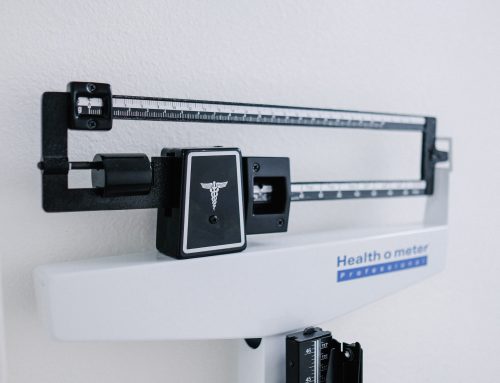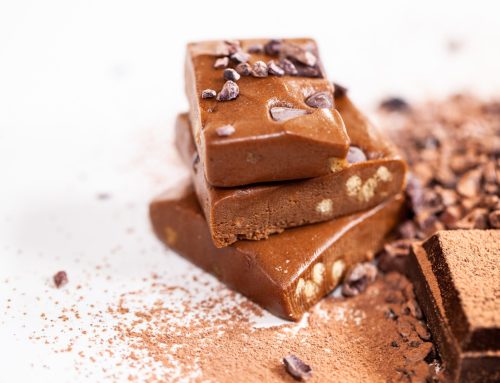Oh the holidays. What a love/hate relationship, eh!?
I’ve got some new and old tips in this article, to help you be more mindful and intentional about your emotions and behaviors. Along with all the good things that come with the holidays, there are always a few downsides. It’s easier to navigate those parts if you can identify the cause and have some realistic and actionable plans in place. It’s most important that you do these steps before you’re in the thick of it! Trying to make plans for change is hard, but even harder when you’re already under stress and feeling overwhelmed.
This article will address some common factors that influence our eating behaviors and offer some ideas for how to stay in control.
Here are the factors that most commonly impact our eating habits, during the holidays:
- Family drama increases emotional stress

- Over committed schedule increases physical and emotional stress
- Treats are flowing off every table you look at! Your willpower is a finite. The more you use it, the weaker it becomes.
- Social acceptability or feeling obligated to eat or drink certain things.
- Traditions
I have a proposition for you:
Consider doing things a little (and I mean a little, if that’s what’s do-able) different this year to minimize the not- so- great aspects of the holidays.
Here are some practical tips to help you navigate positive changes during the holiday season. Take a look and consider doing the one(s) that seem the easiest, or may have the greatest impact on your habits. Once you’ve identified the thing(s) that you plan to work on, write it/them down. I encourage you to also write your plans in the comments section below this article. This will help create a sense of community, support and accountability with others like you. Accountability and support can also come from friends, co-workers and family.
- Load your plate up with the good stuff like veggies and meat.
- Leave a little room for foods that your wouldn’t normally have. Moderation > deprivation.
- Get rid of junky leftovers ASAP
- Either avoid having them by sending them with someone else, or give them away. Honestly, I don’t feel bad about throwing away food that will sabotage the health of myself or others. Don’t pawn off your problem foods onto someone else who might be struggling with willpower.
- Consistently eat a solid breakfast
- This will set your mind and metabolism up for success for the day. Aim to get at least 15 grams of protein in at breakfast.
- Sprinkle in exercise and make reasonable goals
- Plan your exercise time for when you actually might have some time (weekends or days off) and get it done first thing in the AM. On the other days, aim to move your body as much or as often as you can. That might mean walking for 15 mins, doing 20-50 jumping jacks, squats, pushups or planks whenever you have a free moment. Exercise does not need to be done all at once. Fit in a little here and a little there, on your busy days.
- Practice yoga for 15 mins per day or do some form of stress management
- Adding this practice into your daily routine can help you cope with stress, leaving you less reliant on treats and alcohol. This website provides free multi level and time frame yoga classes that you can do at home! Also check out the Headspace App on your phone for a daily 10 minute, guided meditation program.
- Drink lots of water
- Properly hydrating will help regulate your appetite, give you more energy, avoid headaches and hangovers and keep your metabolism humming along.
- Limit treats on days when you don’t have a social gathering
- Save your “sometimes foods” for when it matters at get-togethers.
- Bring a dish
- Bring a dish that you will feel good eating and that others can enjoy. No need for deprivation when you can bring good options!
- Limit your use of willpower when possible
- Evaluate tempting situations and decide if avoiding it is possible or reasonable. Save your willpower for when there is no avoiding a situation.
- Play up the non- alcoholic beverages
- Ask for seltzer, a splash of juice (optional) and some lemon or lime in a glass with a straw. No one will know you’re not drinking a mixed drink. At a sit down dinner? Just say alcoholic drinks give you heart burn.
- Plan which days you will consider “holidays”
- Eating different foods than usual is not a problem as long as it doesn’t drag on forever. Choose which days or events you plan to eat differently and get back to your usual, on the days following.
- Recognize your trigger foods (if you have them) and avoid completely
- It will make things easier later, if you make this one decision now.
- Make your goal to eat mindfully, not complete avoidance or deprivation
- Smell, taste and savor your food. Try not to be so distracted that you forget to enjoy it!
- Don’t beat yourself up when you don’t meet your expectation 100%
- Learn from your mistakes and move on. Harping on it will not change a thing and will only make matters worse!
- Let it go
This video by Diane Sanfilippo, is also a good resource. She riffs on topics like how to deal with food anxiety and handling social situations with family and friends. It’s only 10 minutes and could be helpful.
So what things will YOU be working on this year?
 My office is open for in-person and virtual appointments. Here is the
My office is open for in-person and virtual appointments. Here is the 




Awsome.